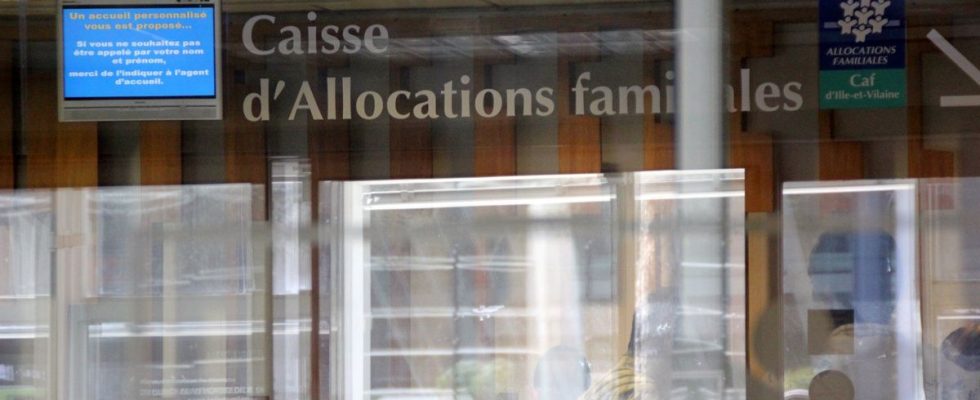The people’s court always castigates the fraudsters. With one of the best social protection systems in the world, France obviously has to deal with numerous abuses. In 2022, the Ministry of the Economy announced that it had recovered 1.6 billion in social fraud thanks to its committed combat plans. An amount far from the estimate provided by the Court of Auditors, which estimated the overall amount of social benefit fraud “between six and eight billion euros”. But there is another fight that the government intends to lead. If they wish to step up the fight against fraud, our leaders also want to seek out all those who do not receive their rights. But why ? 20 minutes answers you.
The project is colossal. In France, it is estimated that the rate of non-take-up of social benefits is 30% on average. For the Active Solidarity Income (RSA), the figure rises to 34% and even to 72% for complementary solidarity health insurance. To try to combat this phenomenon, the State has just designated several “zero non-recourse” territories as part of a call for projects. From January, 39 neighborhoods or towns will be the subject of an experiment of three years. “The primary objective is to reach out to people, inform them of their rights and help them assert them,” explains Christine Le Nabour. In 2018, the Renaissance MP for Ille-et-Vilaine co-wrote a report on “fair performance” which she submitted to Édouard Philippe, then Prime Minister. But why does a state that is constantly seeking to save money want to pay benefits to those who do not ask for it? “Because it’s a right. And the earlier we capture people, the better we will support them. We don’t get people out of precariousness by paying them RSA. But we offer them a safety net and we can ensure that they have a roof over their heads and that they eat their fill,” assures the MP.
From January, the 39 territories affected by this experiment will follow in the footsteps of Bastia, Paris and Vénissieux (near Lyon), the three municipalities already engaged in this test since 2021. An envelope of six million euros has been released . “What we need to do is establish contact with people, explain to them what they are entitled to, but above all help them obtain it. The reasons for non-recourse are multiple. Some feel lost in the face of structures, others lack time, don’t speak the language or are afraid of spreading out their lives. It’s complicated to tell someone you don’t know that you’re in trouble,” says Nicolas Molle, rights ambassador at Passerelle, who works in Vénissieux.
Digitization accused of non-use
In this town, where more than a third of the inhabitants live below the poverty line, aid structures are present but they are not able to reach everyone. The guilty ? “Dematerialization”, according to the social worker. If the digitalization of procedures has made the lives and procedures of many citizens easier, it has also excluded all those who do not master the workings, faced with extremely complex files to complete.
“The queue at CAF is truly awful. But at least you have someone to talk to. When you are in front of a computer, you cannot ask it to explain or show you how to do it,” believes Nicolas Molle.
This observation established by the Lyon social worker is reinforced by the analysis carried out by Pierre Gravoin. This researcher in socio-economics dedicated his thesis to the subject of non-recourse on behalf of Secours Catholique. “In the vast majority of cases, digitization saves time and fortunately so. But the problem is that it was accompanied by a reduction in human resources, with people not always trained who have to fit each situation into a box,” explains the young doctoral student. And when we don’t fit into the boxes? “That’s where it’s complicated. The RSA is very well known to most people and in the majority of cases, we do not talk to invisible people. What poses a problem is often changes in circumstances. People who leave a stable job, for example, sometimes find themselves helpless when faced with eligibility conditions that they do not understand.” Tired of being pushed around, lost in the face of complexity or incredulous in the face of refusal, many beneficiaries give up, de facto renouncing their rights.
“Our system is very complex”
Winner of the call for projects, the city of Rennes chose the working-class neighborhood of Maurepas to make it a “zero non-recourse” area from 2024. “In these neighborhoods, 80% of RSA requests are made through the social action centers. This clearly illustrates the need for presence,” assures Cécile Papillion. The integration and employment assistant in the Breton capital intends to raise awareness of the structures present in the neighborhood, with the hope of reducing the non-recourse rate. “RSA beneficiaries are citizens above all. They must be able to be actors in their journey. But for us to be able to help them, we must be able to engage them to address all the housing, health or childcare issues that they have to face,” assures the elected official.
In an attempt to better network the territory, the State had opened a vast project to create France Services houses, bringing together under one roof the various public services which have closed in succession. “It must be recognized that our system is very complex because we wanted to personalize it. And it’s a good thing ! But there is a renunciation. The user should not bear the complexity of our system. What we need are trained agents capable of responding to situations without leaving anyone behind,” thunders MP Christine Le Nabour. But by the admission of all those interlocutors, the citizens of this country are not all equal on this level. If certain areas are well covered by France Services structures, others are poorly equipped, leaving residents with the bitter taste of abandonment.

